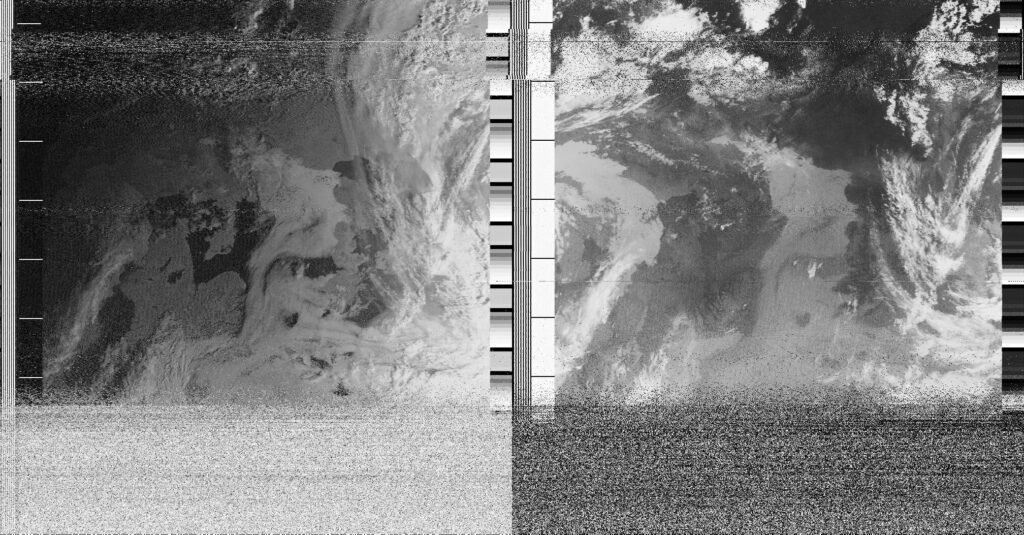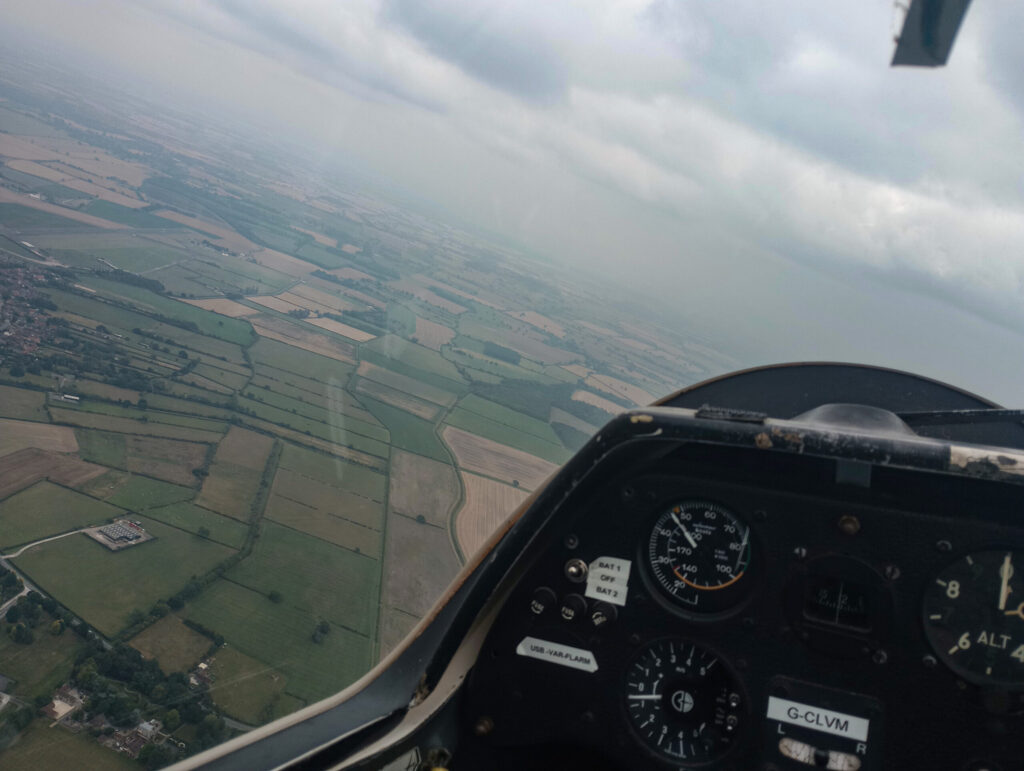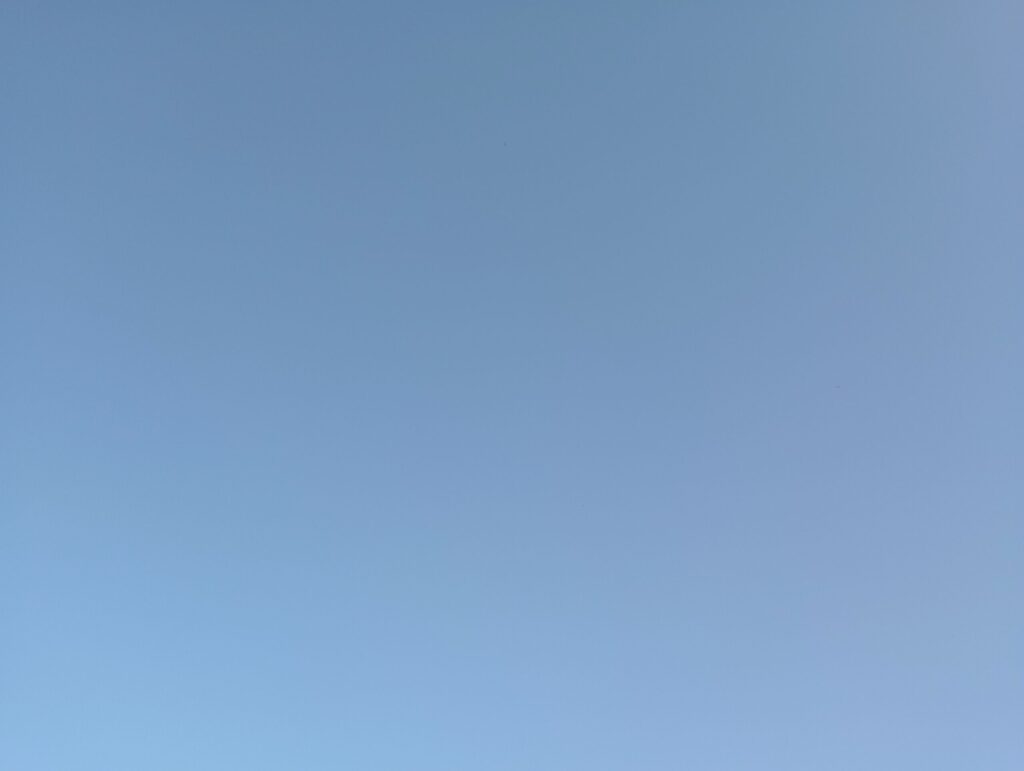Local Date
17 August 2025Local Time
18:52Location
YorkCountry or Territory
United KingdomContributor
Richard A CarterSatellite
NOAA-15Archive ID
Coordinates
This weekend has been marked by eco-anxiety. There have been news reports that this summer could well be the driest on record for the UK, and the tinder-box conditions have resulted, here in Yorkshire, in a devastating fire across Langdale Moor (part of the wider North Yorkshire moorlands). 5 sq. km in size, ecologists have mourned the terrible losses in wildlife and vegetation it has inflicted, warning us that it could take decades, centuries, even millennia to fully recover what has been lost. Time I rather suspect it will not have.
Smoke from the fire has been hanging low over the city of York, around 35 miles away. It has affected atmospheric visibility significantly, shifting the late summer light into a deeper band of gold - more akin to what I expect in early Autumn. On that point, I've noticed the leaves are turning brown and berries and apples are ripening rapidly, which is another sign of the ecological stresses caused by this relentlessly dry summer.
My flight on Saturday was marked initially by some poor visibility - the photo provided has been cleaned significantly, but the conditions at height were noticeably dark. This was a clear result of the rising smoke from the fire - looking in the direction of the moor from launch height at 2,500ft, I could not see anything at all, other than a thick grey pall, many miles across.
In contrast with this sobering sight was the fact this was also a flight where I got to share the air with the local Red Kites, who flew above, below, and alongside the glider, as we took advantage of a slowly drifting thermal to stay aloft. It is always a wonderful experience to be alongside birds in their atmospheric element, and it certainly gives pause for thought, given that Red Kites were persecuted to near-extinction in the UK.
I note all of this as I think this image of the fires while thermalling alongside a recovering species cuts across many ways of thinking and being in the world as it is enveloped in climatic and ecological crises - of their origins, ongoing impacts, and what modes of kinship we might somehow try to foster and sustain in the face of it. The differing modes of agency that drive these activities and events often resist and recalibrate one another, but I want to believe, as the example of the Red Kites shows that generative, maybe even reparative gestures are still possible. The climate scientist Kate Marvel has characterised a need for courage, rather than hope - as the resolve to do what is right, even without the assurance of a good ending. My reserves of courage have been at a particularly low ebb this weekend, confronted by the scale of the Langdale fire and the visceral unease of catching smoke on the wind, but I know I must try all the same.
The air has been mercifully clearer today, but my sounding of NOAA 15 was as messy and unsatisfactory as they have all been as of late. Away from the open spaces of the University campus, the signal is brittle and faint. I've reflected before on noise as a representation of the more-than-human agencies at play in the world, and such agencies are, of course, a key reason why I can still sound NOAA 15 at all - a malfunction aboard NOAA 19 interrupting the smooth decommissioning schedule and demanding immediate attention, leaving NOAA 15 to carry on, if only for a few more days. This is another instance of how agencies beyond our own often disrupt or forestall our best-laid plans, and as the world changes ever more, such contingencies will become not only more unavoidable, at every scale of daily activity, but will be increasingly insurmountable. Courage, again, is needed in the search for more thoughtful imaginaries, approaches, and ways of being.
NOAA 15 is due to be decommissioned this week - I do not know if I will catch it again, but, as with all things, I shall try.


